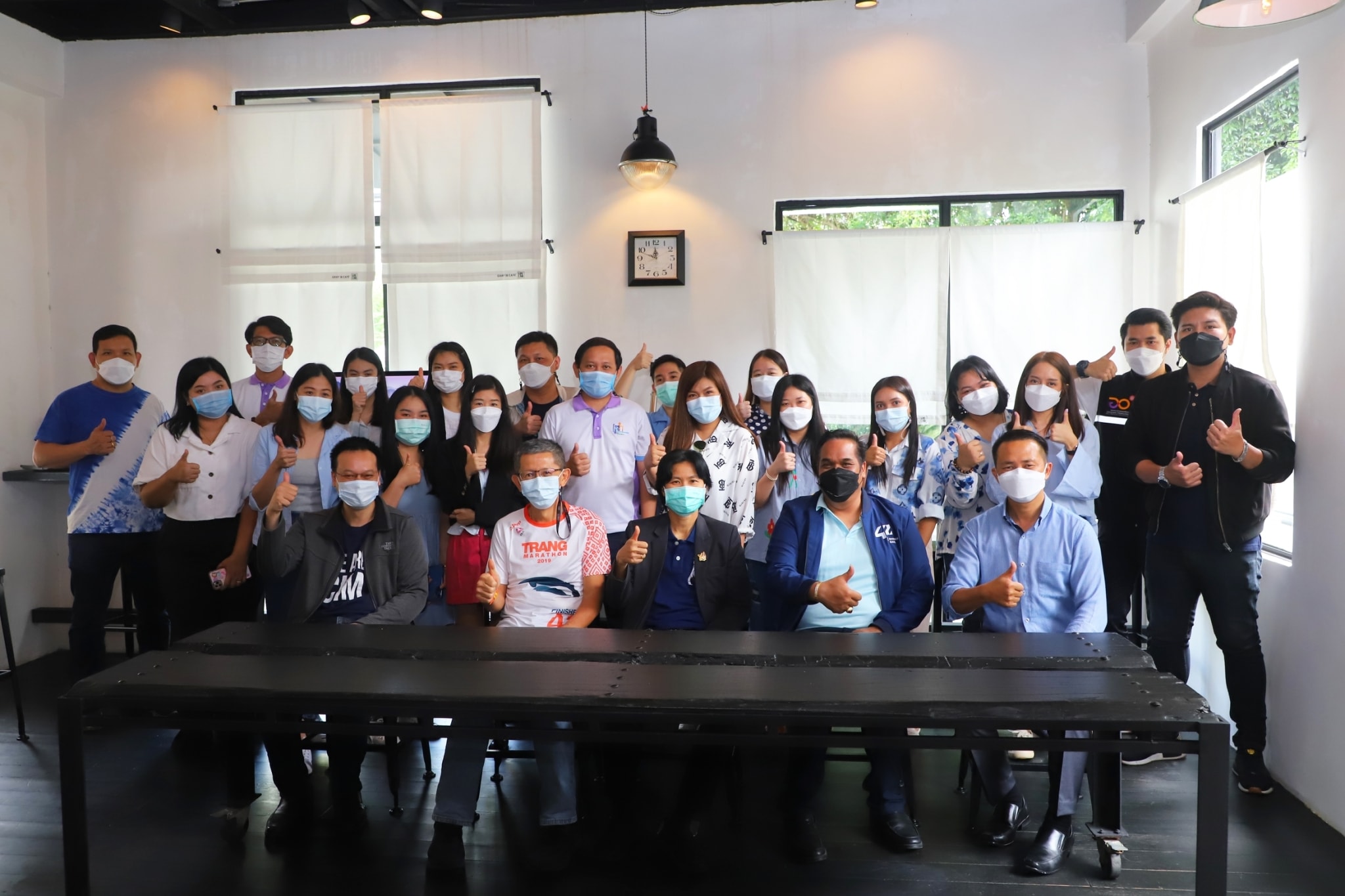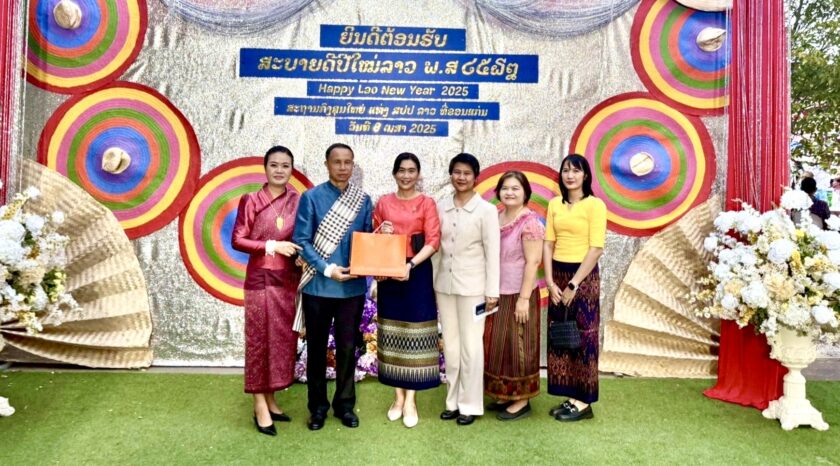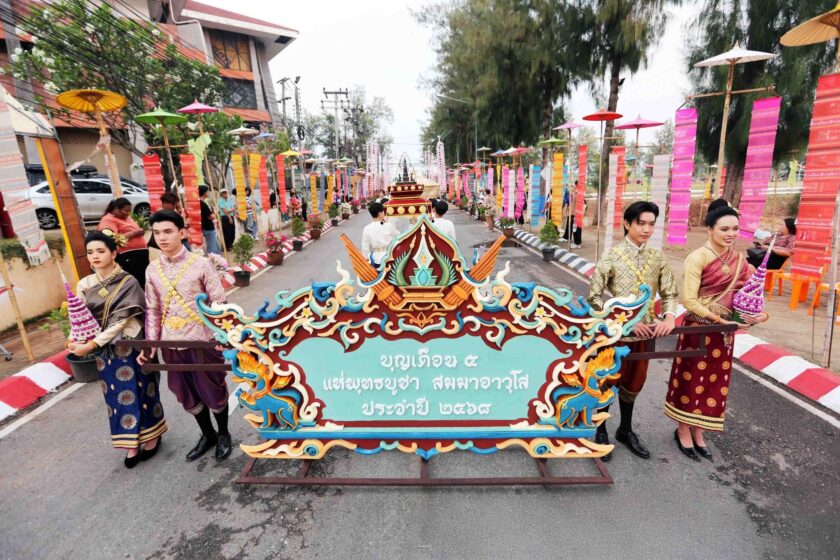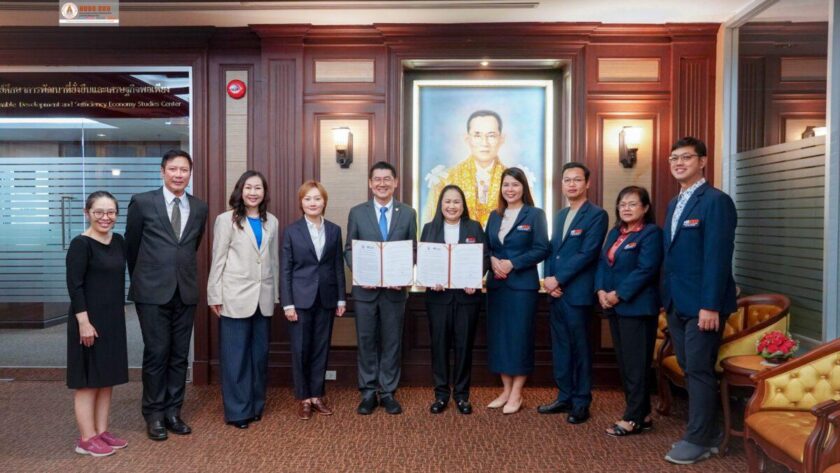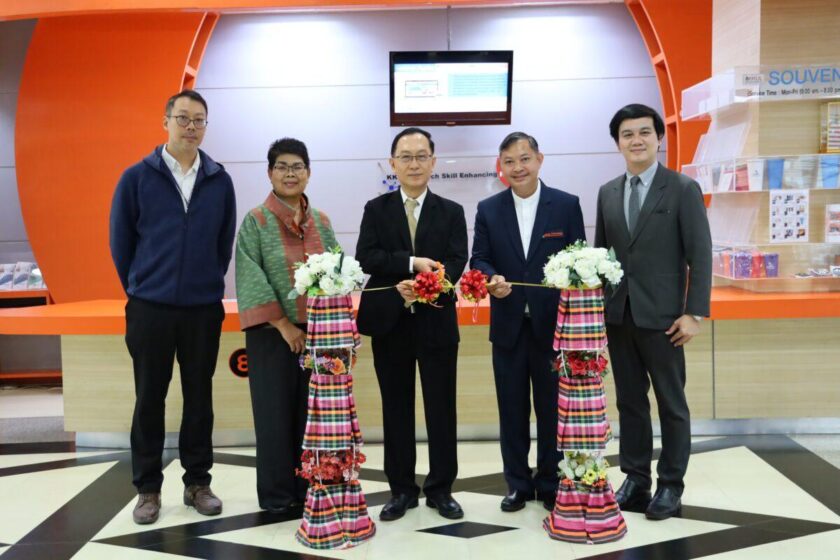February 19, 2022 – the workshop on management of industrial research potential was held under the TALENT MOBILITY (TM Clearing House) project. The activity included discussion on the selection of Talent Mobility projects. Roughly 284 were completed in the fiscal years 2016-2019. Projects with commercial utilization potentiality were being aimed at. Prof. Supachai Pathumnakul, Ph.D., Deputy Permanent Secretary of the Ministry of Higher Education, Science, Research and Innovation presided over the opening session. Among participants joining the selection process were Mr. Panpermsak Arunee, an expert in human resources; Prof. Thidarat Boonmars, Ph.D., Vice President of Khon Kaen University for Innovation and Enterprise; Mr. Apirachai Wongsriworapon, Director of Khon Kaen University Science Park; Mr. Worasan Sopon, Deputy Director of the Science Park of Prince of Songkhla University; and representatives of the 6 Talent Mobility network universities, including Chulalongkorn University, Khon Kaen University, Chiangmai University, King Mongkut University of Technology Thonburi, Mahidol University and Prince of Songkhla University.

Prof. Supachai Pathumnakul, Ph.D., Deputy Permanent Secretary of the Ministry of Higher Education, Science, Research and Innovation explained that the important goal of the Talent Mobility Project is to enable researchers to collaborate with the private sector to upgrade the industry. What MHESI wants to happen in the future is to have researchers working full time with the private sector. With the situation and many constraints, this was not possible before. It is hoped that in the future, relevant personnel would help propel this objective and make it really happen for a long term so that the private sector would be confident that what had been developed would answer the problem and would be worth the budget and time spent. The key propeller is the Clearing House, which should intensively collaborate and proceed towards the aim. This means ‘talent mobility’ is upgraded to another level, enabling researchers to be part of or become officers in the private sector until the expertise has been acquired. The researchers or university lecturers will also be able to apply for higher academic positions from the outcomes of the work. Finally, it is hoped that students can take part in the research and work with the private sector. The teaching and learning in the university can be changed from the former methods, using experiences of the lecturers and researchers together with the theoretical knowledge.
The afternoon and evening sessions featured the work on the project management guidelines. These sessions were led by Prof. Peerapong Teekasakul, the Managing Committee member of the Talent Mobility Project. Prof. Peerapong Teekasakul said, “All through the 7 years of the project, we have learned a lot in management and administration of the project. The common objective is for fast development of the private sector. Universities including lecturers, researchers, students and coordinators had to work intensively with the private sector, bringing with them knowledge in research and development while the budget being allocated. The important thing is that there must be the true outcomes. Universities all over the country have a lot of potential researchers. We have to push these researchers to help in the private sector and industries. It is good for the researchers themselves, and the private sector will benefit from value addition in the goods, industries and services. If such integration of work goes on, the industrial and private sector will certainly leap forward. I’d like the university sector to help develop the R&D potential for the private sector, because this will be the basis for self-development in the future. The important thing is that we should see the problem clearly and solve it efficiently. All must have the same goal and work towards it. Thailand will certainly become a developed country.”

The last part was a talk on “Applying for an academic position with the work outcomes from the Talent Mobility project”, by Asst. Prof. Surapin Promdaen, a researcher from the Talent Mobility project from Lanna Rajamangala University of Technology. Asst. Prof. Surapin Promdaen is the first lecturer who applied for an academic position with the work from the Talent Mobility project under the second category: other types of work (academic work for industry).
News / photos: Ministry of Higher Education, Science, Research and Innovation

